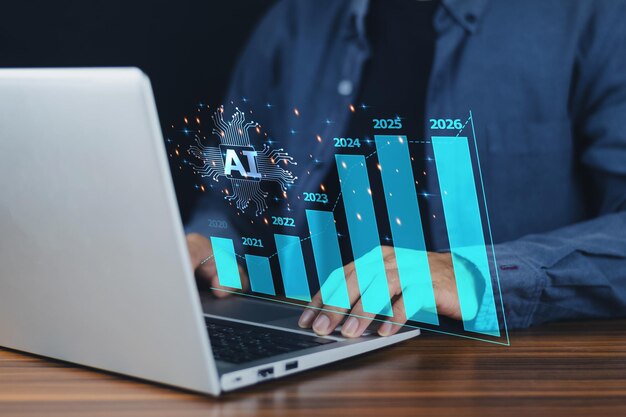AI-Driven ERP Systems: The Future of Nusaker Business

In today’s fast-paced business environment, organizations are constantly seeking ways to enhance efficiency, reduce costs, and improve decision-making. One of the most significant advancements in this area is the integration of Artificial Intelligence (AI) into Enterprise Resource Planning (ERP) systems. For ai driven erp systems future of nusaker businesses, which are often characterized by their unique challenges and opportunities, AI-driven ERP systems represent a transformative solution that can redefine operational capabilities and drive future growth.
Understanding ERP Systems
Enterprise Resource Planning (ERP) systems are integrated software platforms that manage and streamline a company’s core business processes. These processes include finance, human resources, supply chain management, manufacturing, and customer relationship management. Traditional ERP systems have been instrumental in helping businesses consolidate their operations, improve data accuracy, and enhance reporting capabilities. However, as technology evolves, so too do the expectations of businesses and their stakeholders.
The Rise of AI in ERP
Artificial Intelligence has emerged as a game-changer across various industries, and its integration into ERP systems is no exception. AI technologies, such as machine learning, natural language processing, and predictive analytics, are being harnessed to enhance the functionality of ERP systems. This integration allows businesses to automate routine tasks, gain deeper insights from data, and make more informed decisions.
For Nusaker businesses, which often operate in dynamic and competitive markets, the adoption of AI-driven ERP systems can provide a significant competitive edge. By leveraging AI, these businesses can optimize their operations, improve customer experiences, and drive innovation.
Key Benefits of AI-Driven ERP Systems for Nusaker Businesses
1. Enhanced Decision-Making
One of the most significant advantages of AI-driven ERP systems is their ability to analyze vast amounts of data quickly and accurately. By utilizing predictive analytics, these systems can identify trends, forecast demand, and provide actionable insights. For Nusaker businesses, this means better inventory management, improved financial forecasting, and more strategic planning.
2. Automation of Routine Tasks
AI can automate repetitive tasks that consume valuable time and resources. For instance, invoice processing, payroll management, and inventory tracking can all be automated through AI-driven ERP systems. This not only reduces the likelihood of human error but also frees up employees to focus on more strategic initiatives that drive business growth.
3. Improved Customer Experience
In today’s customer-centric market, providing an exceptional customer experience is crucial. AI-driven ERP systems can analyze customer data to identify preferences and behaviors, enabling businesses to tailor their offerings accordingly. This personalized approach can lead to increased customer satisfaction and loyalty, which are essential for long-term success.
4. Real-Time Insights
AI-driven ERP systems provide real-time data analysis, allowing businesses to respond quickly to changing market conditions. For Nusaker businesses, this agility is vital in a landscape where consumer preferences and market dynamics can shift rapidly. With real-time insights, businesses can make informed decisions that align with current trends and demands.
5. Cost Reduction
By automating processes and improving efficiency, AI-driven ERP systems can lead to significant cost savings. For Nusaker businesses, this means better resource allocation and reduced operational costs. Additionally, the ability to forecast demand accurately can help minimize excess inventory, further contributing to cost reduction.
Challenges and Considerations
While the benefits of AI-driven ERP systems are substantial, Nusaker businesses must also consider the challenges associated with their implementation. Transitioning to an AI-driven ERP system requires careful planning, investment, and change management. Here are some key considerations:
1. Data Quality
The effectiveness of AI-driven ERP systems relies heavily on the quality of the data being fed into them. Businesses must ensure that their data is accurate, complete, and up-to-date. This may require investing in data cleansing and management processes before implementing an AI-driven ERP system.

2. Change Management
Implementing a new ERP system, especially one that incorporates AI, can be a significant change for employees. Businesses must invest in training and change management strategies to ensure that employees are comfortable with the new system and understand how to leverage its capabilities effectively.
3. Integration with Existing Systems
Many Nusaker businesses may already have existing ERP systems in place. Integrating AI capabilities into these systems can be complex and may require additional resources. Businesses must carefully evaluate their current systems and determine the best approach for integration.
4. Cost of Implementation
While AI-driven ERP systems can lead to cost savings in the long run, the initial investment can be substantial. Nusaker businesses must weigh the potential benefits against the costs of implementation and ensure that they have a clear strategy for achieving a return on investment.
The Future of Nusaker Business with AI-Driven ERP Systems
As Nusaker businesses look to the future, the integration of AI-driven ERP systems will likely play a pivotal role in their success. The ability to harness data, automate processes, and gain real-time insights will empower these businesses to navigate challenges and seize opportunities in an increasingly competitive landscape.
Moreover, as AI technology continues to evolve, the capabilities of AI-driven ERP systems will expand, offering even more sophisticated tools for analysis and automation. This evolution will enable Nusaker businesses to stay ahead of the curve, adapting to market changes with agility and precision.
Embracing Innovation
To fully leverage the potential of AI-driven ERP systems, Nusaker businesses must foster a culture of innovation. This involves encouraging employees to embrace new technologies and explore creative solutions to business challenges. By prioritizing innovation, organizations can create an environment where AI tools are utilized to their fullest extent, driving continuous improvement and growth.
Collaboration and Partnerships
Collaboration with technology providers and industry experts can also enhance the implementation of AI-driven ERP systems. By partnering with specialists who understand the nuances of AI and ERP integration, Nusaker businesses can gain valuable insights and support throughout the transition process. These partnerships can facilitate knowledge sharing and help organizations navigate the complexities of AI adoption.
Continuous Learning and Adaptation
The landscape of AI and ERP technology is constantly evolving. Nusaker businesses must commit to continuous learning and adaptation to keep pace with advancements. This may involve ongoing training for employees, regular system updates, and staying informed about emerging trends in AI and ERP solutions. By fostering a mindset of adaptability, businesses can ensure they remain competitive in a rapidly changing environment.
Conclusion
AI-driven ERP systems represent a significant opportunity for Nusaker businesses to enhance their operational efficiency, improve decision-making, and deliver exceptional customer experiences. While challenges exist, the potential benefits far outweigh the obstacles. By embracing AI technology, fostering innovation, and committing to continuous improvement, Nusaker businesses can position themselves for success in the future. As they navigate the complexities of the modern business landscape, AI-driven ERP systems will be a crucial tool in their arsenal, enabling them to thrive in an increasingly competitive world.



